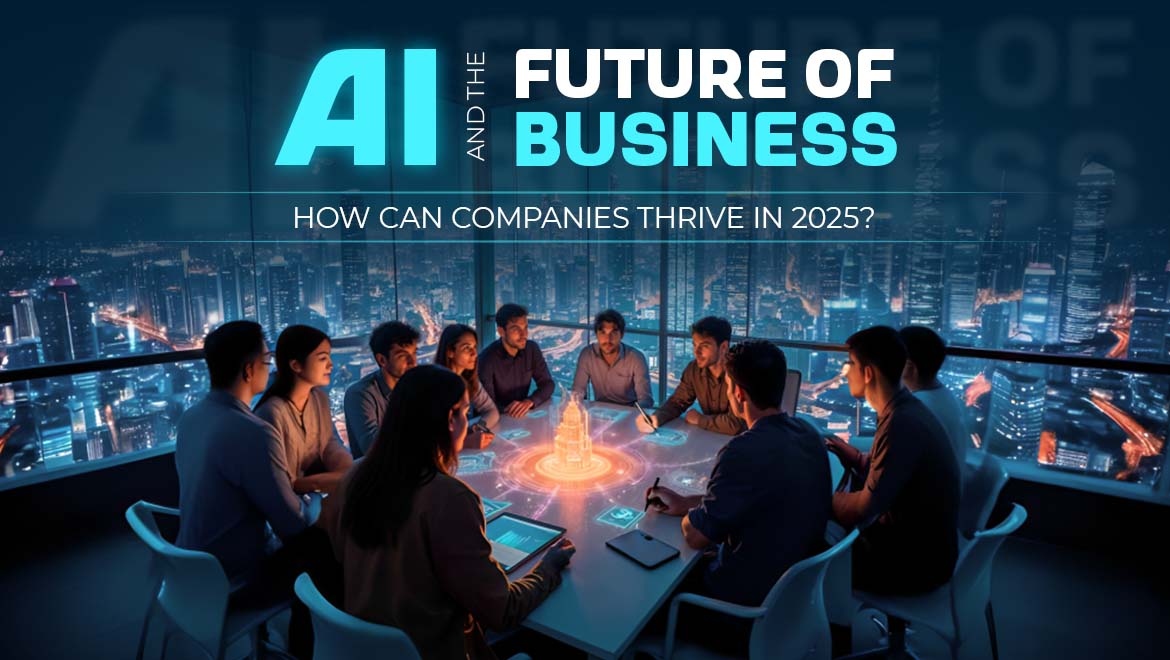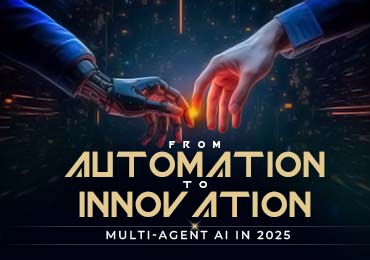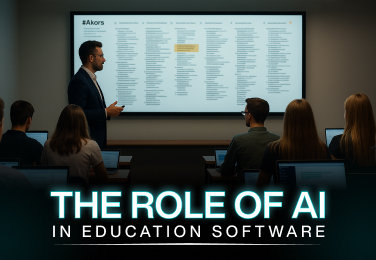

- By Admin
- 30 June, 2025
- 5 min Read
AI and the Future of Business—How Can Companies Thrive in 2025?
Wherever you are in your industry or journey, Artificial Intelligence 2025 will meet you there. As we move into the future, businesses will harness AI and data to drive faster, more predictive, and proactive decision-making—while also guiding organizations toward a brighter future.
There’s no doubt that artificial intelligence is redefining the future of work, revolutionizing industries, and redefining job roles. AI-driven automation, enhanced workforce capabilities, and intelligent decision-making will continue to transform the business landscape.
Organizations that proactively embrace AI won’t just survive but will also thrive in this new era. This blog explores the impact of human-AI collaboration on the future of business and how organizations can adapt to stay competitive and resilient.
The Role of AI in the Future of Business
Artificial intelligence is no longer just a futuristic concept; rather, it is actively streamlining business operations, optimizing workflows, and enhancing productivity. Below are mentioned some major areas where AI-driven transformation will be making a significant impact—
- Automating Repetitive Tasks: AI-powered business automation minimizes manual efforts in different tasks, including data entry, inventory management, customer service, and more! This enables employees to focus on higher-value work, which requires innovation, creativity, and strategic thinking.
- Augmenting Decision-Making: The advanced AI-driven analytics help organizations make data-centric decisions with the utmost agility and accuracy. Machine learning algorithms, predictive analytics, and AI-powered intelligence tools bring more profound insights into market trends and customer behavior.
- Enhancing Customer Experiences: AI-powered chatbots, personalized recommendations, and virtual assistants are enhancing consumer interactions, ensuring seamless experiences, and boosting customer satisfaction.
- Redefining Workforce Roles: The powerful synergy between AI and workforce is expected to drive a huge transformation in how work gets done. Artificial intelligence is not just automating routine tasks but also creating new opportunities for AI experts, digital transformation professionals, and data scientists, redefining job roles in the process.
The Impact of AI in Business—2025 and Beyond
The landscape of modern businesses is set for a massive transformation, driven by emerging technologies and AI-driven business strategies. If you own a business and aspire to elevate its growth and success, embracing artificial intelligence is crucial. Here’s how you can integrate artificial intelligence in the years ahead—
1. Invest in AI Training & Upleveling
With artificial intelligence automating routine tasks, every employee should develop new skill sets to be ahead of and above the digital noise. Organizations must invest in AI literacy programs, technical training, and reskilling initiatives to equip their workspaces with necessary AI and data analytics skills. Upskilling employees with AI-powered decision-making, innovation, and problem-solving will also help them work more efficiently alongside AI-centric systems.
2. Create a Human-AI Collaboration Culture
Artificial intelligence must be witnessed as an enabler rather than a replacement for human workers. Organizations should promote a culture where artificial intelligence and human intelligence complement each other. By leveraging AI to handle regular tasks, employees can lay an emphasis on more innovative and complex responsibilities, driving massive business growth.
3. Integrate AI Ethically and Transparently
As artificial intelligence becomes way more prevalent, ethical concerns around privacy, bias, and data safety are gaining a significant amount of importance. Businesses should adopt AI responsibly, making sure of transparency and fairness in AI-driven decision-making. Establishing AI governance frameworks as well as regulatory compliance measures will help establish trust among employees and consumers.
4. Leverage AI for Personalized Consumer Experiences
Businesses can leverage AI for productivity by thoroughly analyzing consumer behavior, needs, and choices to deliver custom-tailored recommendations, enhance response times, and improve overall customer satisfaction. By utilizing bleeding-edge, AI-powered marketing tools, organizations can create hyper-personalized interactions and foster stronger customer relationships.
5. Shape Business Strategies with AI Insights
AI-driven predictive analytics offer businesses a competitive edge by forecasting market trends, identifying challenges, and optimizing supply chains. Organizations that integrate advanced AI-driven insights into the process of decision-making can make more wise, informed decisions and agile business strategies, taking efficiency and profitability to another height.
6. Embrace AI-Centric Hybrid & Remote Work Models
The emergence of artificial intelligence has accelerated the adoption of hybrid and remote work models, unlocking galore possibilities for the future of AI and remote work. Advanced AI-powered collaboration technologies, virtual workspaces, and automated project management systems are boosting remote work efficiency. To be competitive, businesses must embrace flexible work models, attracting top-tier talent and escalating productivity to new heights.
The Path to Success—Thriving in the AI Era
The future of business is undeniably AI-driven, but it’s not about replacing human workers—it’s about empowering them. Organizations that embrace AI and digital transformation, prioritize workforce development, and integrate artificial intelligence seamlessly into their operations will position themselves as industry leaders.

